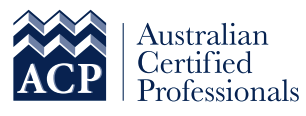Do You Use Company Money Or Assets
Alan Law • March 16, 2021
Your company is a separate legal entity from you as a director or shareholder. The money your business earns and its assets belong to the company.
It’s important to keep appropriate records and correctly report transactions if you use company money or assets. Fox example:
• take money out of your company for yourself or your family
• receive money from it (for example, as a director, shareholder or an associate)
• use your company’s assets for private purposes
You may do it through, for example:
• salary, wages or director’s fees
• repayments of a loan you have previously made to the company
• a fringe benefit, such an employee using a company car
• dividends
• a loan from the company
Not correctly reporting and keeping appropriate records for transactions can result in an unfranked deemed dividend being included in your assessable income.
If you realize that you’re not correctly reporting these transactions or keeping appropriate records, talk to a registered tax professional and make sure that you correctly report the use of company money or assets in your next tax return.
If you have made a mistake or left something out of your previous tax returns, you can lodge an amendment.
Contact ACP Accountants today, your Sydney business accountants.

On 14 May 2024, as part of the 2024–25 Budget, the government announced it will continue to provide support for small businesses by extending the $20,000 instant asset write-off limit for a further 12 months until 30 June 2025. This measure is now law. Under the measure small businesses with an aggregated turnover of less than $10 million, can deduct: the full cost of eligible depreciating assets costing less than $20,000 that are first used or installed ready for use between 1 July 2024 and 30 June 2025; an amount included in the second element (cost addition) of eligible depreciating asset's cost that they have incurred between 1 July 2024 and 30 June 2025, if they claimed an immediate deduction for the asset under the simplified depreciation rules in a prior income year where the amount is: the first amount of second element cost incurred after the end of the income year in which the asset was written off; and less than $20,000. The $20,000 limit under the measures applies on a per asset basis, so small businesses can instantly write off multiple assets. Assets valued at $20,000 or more can continue to be placed into the small business simplified depreciation pool and depreciated at 15% in the first income year and 30% each income year after that. In addition, pool balances under $20,000 at the end of 2024-25 income year can be written off. Are you running your own business and have no time to deal with tax issues? Contact us today, Sydney's leading accounting firm at ACP Accountants on 02-8046 7621, or simple drop us a line at info@acpaccountants.net.au.

If you employ staff, here are the important dates and obligations to remember throughout the year, to set yourself up for success. Super guarantee (SG) 28 January, 28 April, 28 July, and 28 October are the quarterly due dates for making SG payments. The SG rate is currently 11.5% of an employee’s ordinary time earnings. From 1 July 2025, the SG rate will increase to 12%. Ensure SG for your eligible employees is paid in full, on time and to the right super fund. If you don’t, you'll need to lodge a super guarantee charge (SGC) statement and pay the SGC to the ATO. Fringe benefits tax (FBT) 31 March 2025 marks the end of the 2024–25 FBT year. There are 4 key steps to nail your obligations for FBT tax time. Identify if you've provided a fringe benefit. Determine the taxable value to work out if you have an FBT liability. Lodge an FBT return and pay any FBT owed (if you have a liability) by 21 May 2025. If your registered tax agent lodges electronically for you, you have until 25 June 2025. Keep the right records to support your FBT position. Pay as you go (PAYG) withholding You need to withhold the right amount of tax from payments you make to your employees and other payees, and pay those amounts to the ATO. This helps your employees meet their end-of-year tax liabilities. Your accounting or payroll software, the ATO tax tables or online tax withheld calculator will help you do this. Single touch payroll (STP) Fina lize your STP data by 14 July 2025 for the 2024–25 year. This ensures your employees have the right information they need to lodge their income tax returns. If you have any closely held payees, you may have a later due date for those payees only. Remember to finalize all employees you’ve paid in the financial year. ACP Accountants are leading Sydney accountants and tax specialists. Please call us today on 02-8046 7621 if you need our help.

With the holiday season kicking off, you may be planning a celebration with your staff. Consider if fringe benefits tax (FBT) may apply or you could end up with an unexpected FBT liability. Before you hire a restaurant or book an event, make sure you work out if the benefits you provide your employees are considered entertainment related and if they’ll attract fringe benefits tax (FBT). This will depend on: the amount you spend on each employee when and where your celebration is held who attends - is it just employees? Or are partners, clients and suppliers also invited? the value and type of gifts you provide If you do provide entertainment-related fringe benefits, keep the right records to support this so you can calculate their taxable value. It's important to get on top of how FBT works before you provide perks and extras. Otherwise, you may end up with an unexpected FBT liability. For more information, please contact your Sydney business accountants – ACP Accountants on 02-80467621, or simply get in touch and email us at info@acpaccountants.net.au.
